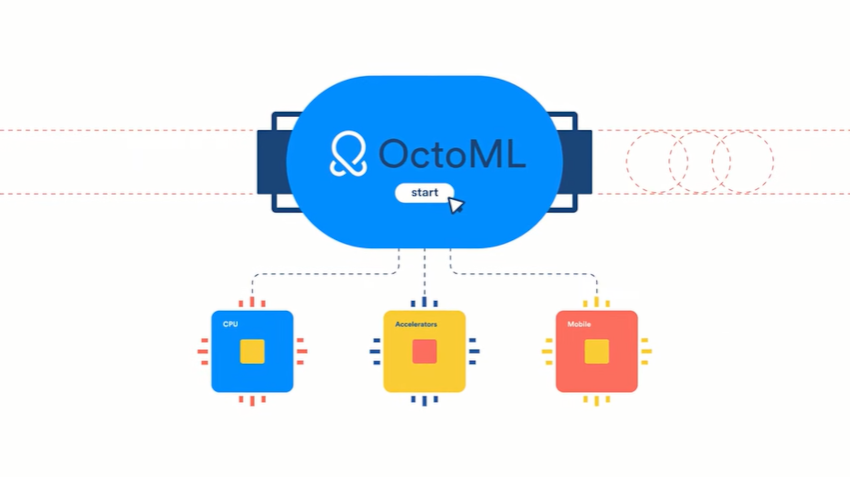 AI
AI
 AI
AI
 AI
AI
OctoML Inc. today updated its artificial intelligence development platform with new features designed to ease the work of enterprise software teams.
Seattle-based OctoML was founded in 2019 by a group of University of Washington researchers. Since then, the startup has raised more than $130 million in funding from investors. OctoML provides a platform that can automatically optimize AI models to increase the speed at which they process data.
According to OctoML, the update that it’s rolling out for its platform today will enable customers to turn their AI models into “portable software functions.” The result, the startup says, will be a simplified software development workflow.
Technical constraints historically required developers to build and manage AI models with different tools than the ones they usually use in other application projects. This can make developers’ work more difficult. OctoML says that its portable software function technology enables customers to build and manage AI models with many of the same tools they use in other application projects, which simplifies the development workflow.
Some of the features in the new release of the startup’s platform are powered by Nvidia Corp.’s Triton technology. Triton enables companies to use Kubernetes to manage the infrastructure on which their AI models run. The technology also works with Prometheus, a popular software system for detecting and troubleshooting application errors.
Another key feature of Triton is that it’s compatible with multiple types of processors. An AI model powered by Triton can run on graphics processing units from Nvidia, as well as Intel Corp. processors and chips based on Arm Ltd. blueprints.
“Today’s manual, specialized ML deployment workflows are keeping application developers, DevOps engineers and IT operations teams on the sidelines,” said OctoML co-founder and Chief Executive Officer Luis Ceze. “Our new solution is enabling them to work with models like the rest of their application stack, using their own DevOps workflows and tools.”
The new capabilities that OctoML is rolling out will complement its platform’s existing features for optimizing AI models. The platform uses machine learning to find ways of increasing a neural network’s performance. It then applies optimizations without the need for manual developer input.
Increasing an AI model’s speed allows data to be turned into insights faster. Optimizing performance also makes it possible to reduce an organization’s infrastructure costs. If optimizing a neural network doubles its performance, then the neural network can generate insights at the same speed as before using half as much infrastructure.
OctoML claims that its platform can make AI models up to 30 times faster. Moreover, automating the AI optimization process saves time for developers by removing the need to find manual ways of making a neural network’s code more efficient.
Support our mission to keep content open and free by engaging with theCUBE community. Join theCUBE’s Alumni Trust Network, where technology leaders connect, share intelligence and create opportunities.
Founded by tech visionaries John Furrier and Dave Vellante, SiliconANGLE Media has built a dynamic ecosystem of industry-leading digital media brands that reach 15+ million elite tech professionals. Our new proprietary theCUBE AI Video Cloud is breaking ground in audience interaction, leveraging theCUBEai.com neural network to help technology companies make data-driven decisions and stay at the forefront of industry conversations.